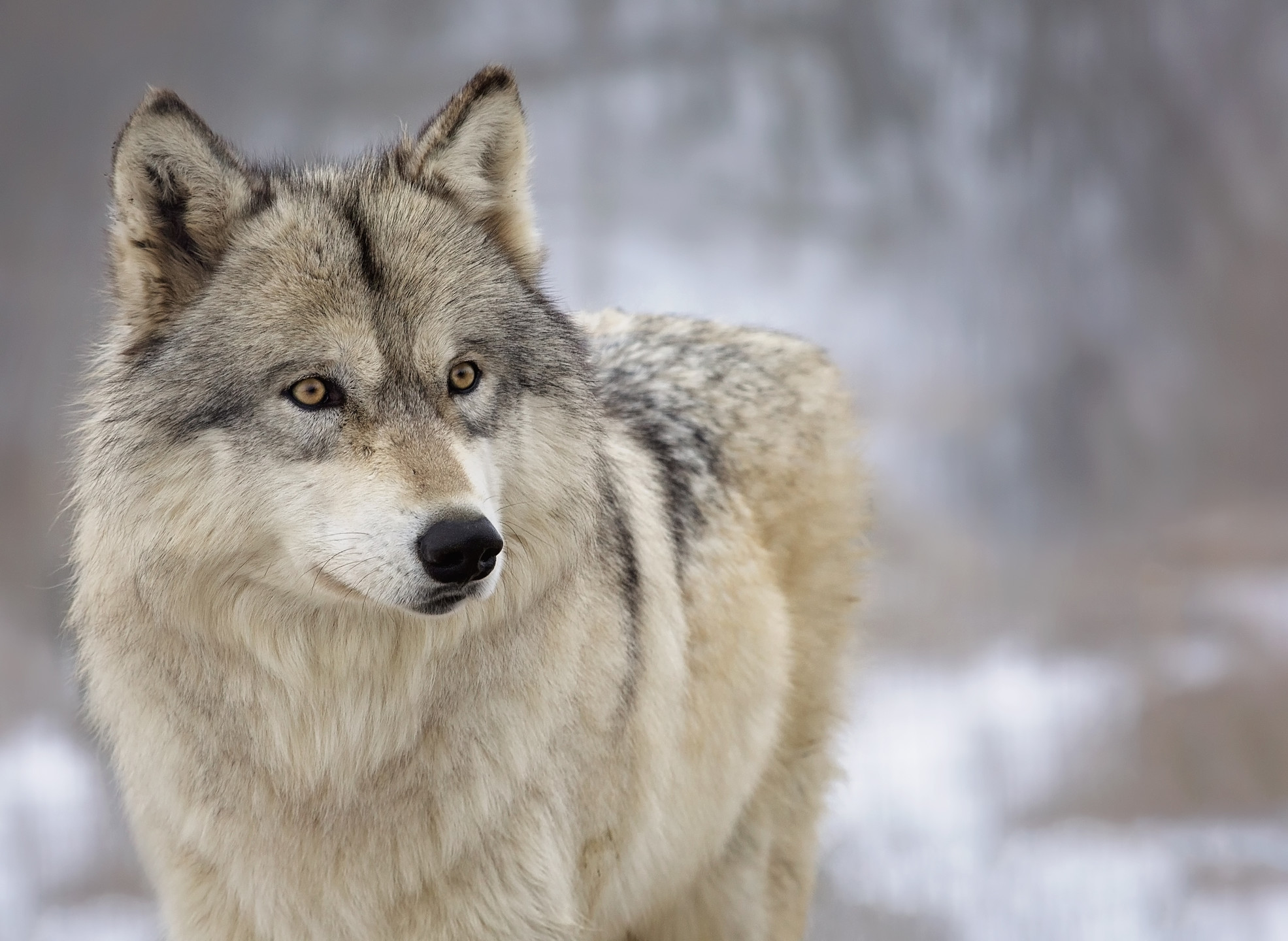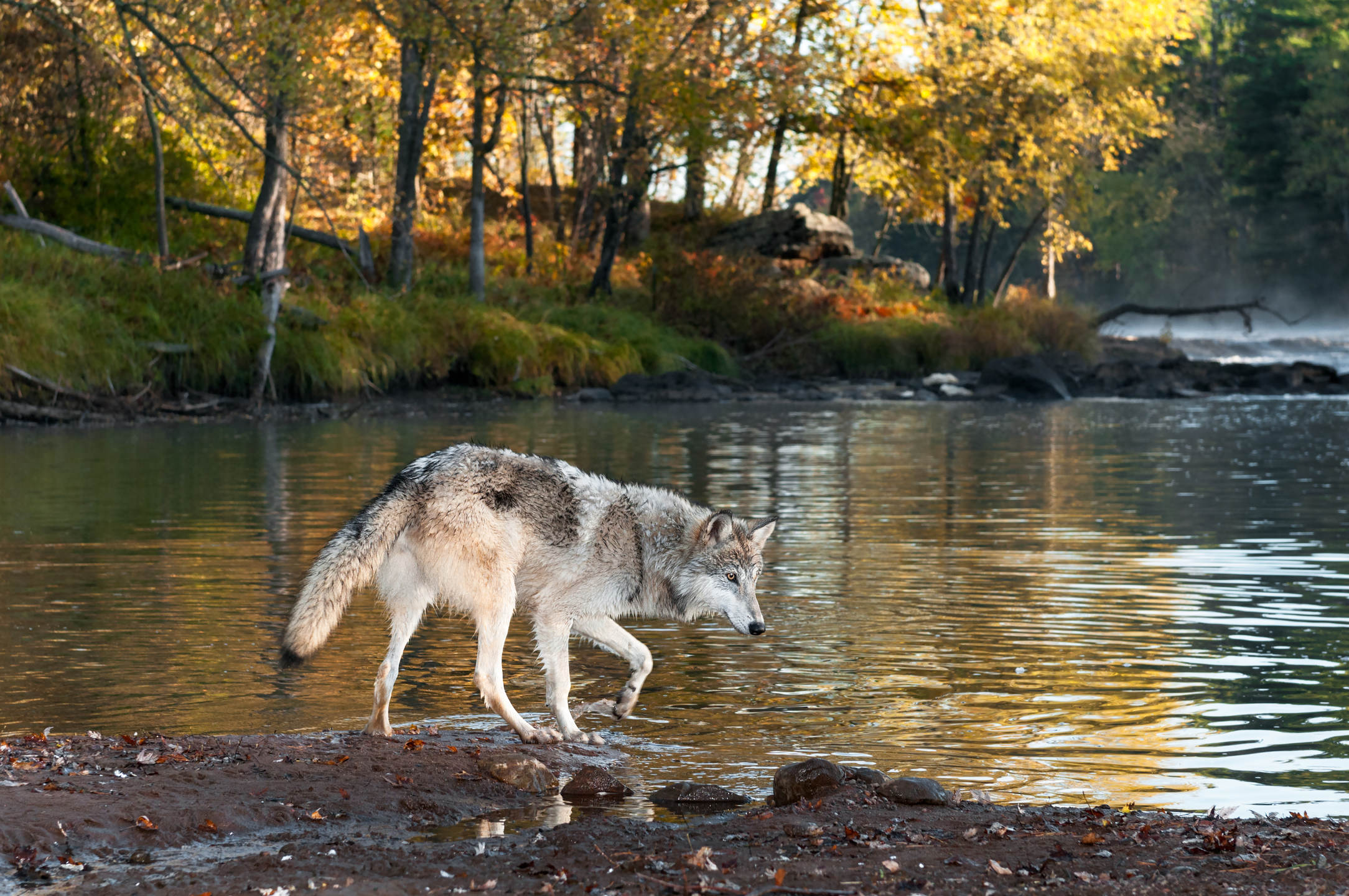According to recent news outlets, the great gray wolf species has been marked off the endangered species list in the US.
Install MyStart Theme for Google Chrome
But wildlife advocates find this controversial and don’t agree with the statement.
It does call upon questions that,
- How many wolves are left in the world in the first place?
- Are they really endangered?
- And if so, then what can we do to help?
So once found in abundant numbers in North America and Eurasia, wolves are no longer in as numerous numbers as they were hundreds of years ago. There is no possibility of knowing exactly how many wolves there are in the world. However, scientists have estimated that around 200,000 to 250,000 wolves are inhabiting the world, with the majority of the species residing in the United States and about 50,000 gray wolves living in Canada.

Fan of wolves? Get stunning images of wolves every time you open a new tab.
Quite evidently, the reason these numbers have shrunk ever so drastically over the years is because of human encroachment. As we continue to outnumber animals and destroy their natural habitat for our living facilities, it has only increased the number of human-wolf encounters. These situations hardly ever end well for the predator as authorities usually prefer destruction as there is no other way to go about it.
The nature of the animal works against the odds of its life because we humans can’ push back our encroachments, and as we continue to barge in their territory, the animal is the one to sacrifice. These are the primary reasons wolves have a hard time recovering their numbers and clearly making it out of the endangered species list.

How Can We Help the Wolves Grow In Number?
Naturally, we humans are to be blamed for putting the wolf species in danger in the first place. Hence, it is only fair that we work ourselves to take action against this and revive the number of wolves still left on this planet.
One really cannot do anything that will produce immediate results. However, the following measures can be taken and practiced overtime to reverse the damage we have caused and gradually help the wolves grow in number.
1. Become a Member
The best thing you can do right away to get started is to become a member of an organization that is already working towards the cause. Your funds and volunteering efforts will amplify their voices, creating awareness and multiply their physical efforts against forest encroachments and wolf killings.

2. Educate Yourself
In order to derive your passion for the action you are taking is to educate yourself. Otherwise, this will only become an impulsive decision upon which you’ll soon give up. Whereas if you continue to read, research, and educate yourself about wolves, their species, and how to save them, the fire in you to help will continue to stay ignited.
3. Think Globally, Act Locally
There is nothing wrong with thinking big and working towards providing your efforts for the cause on a higher level. However, you are limited by your abilities and reach. So it is only best that while your thoughts and efforts are towards the greater god, you work with local organizations or at your ground level to help save wolves.
4. Have an Open Mind
It is crucial to have an open mind when it comes to working towards saving the wolf species. The reason is that human encroachment of their habitat is not the only reason why the wolf population is not increasing. There are more reasons like hunting wolves for fur, organs, etc. Hence, someone with an open mind will not speak against just a single reason but stop all unfair means and usage of wolves other than their contribution to the ecosystem.

5. Reduce, Reuse, Recycle
Let your neighbors and friends laugh at you, but your commitment to the cause should help you remain steadfast in reducing, reusing, and recycling. It is one of the most basic things you can do to help save wolves and many other wildlife animal populations from endangerment. Moreover, you can encourage your friends and loved ones to do the same as it is easy to perform as a healthy act, yet has a greater impact on the whole.
Bottom Line
Remember, wolves and many other wildlife animals are on the brink of extinction and are likely endangered. Our knowledge and advocacy towards saving their kind are beneficial for them and have immense long-term benefits for humans too. Become a better human for the wolves!
Want to be motivated during research about saving wolves? Find breathtaking pictures of wolves in the wild every time you open a new tab!
Fan of wolves? Get stunning images of wolves every time you open a new tab.
Install MyStart Theme for Google Chrome










